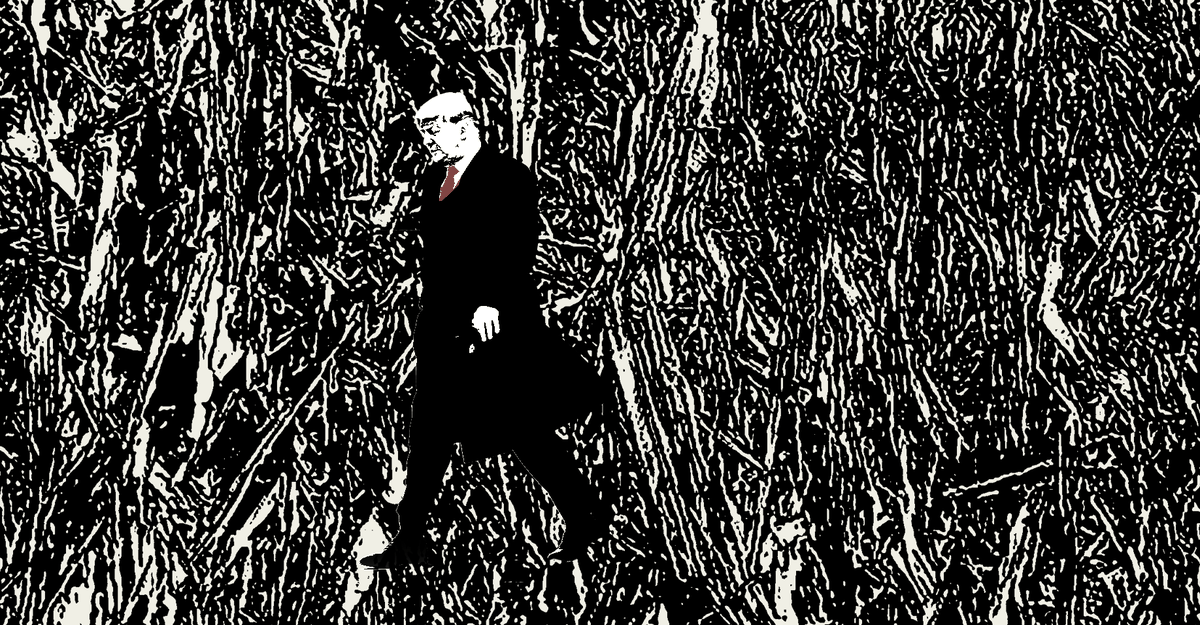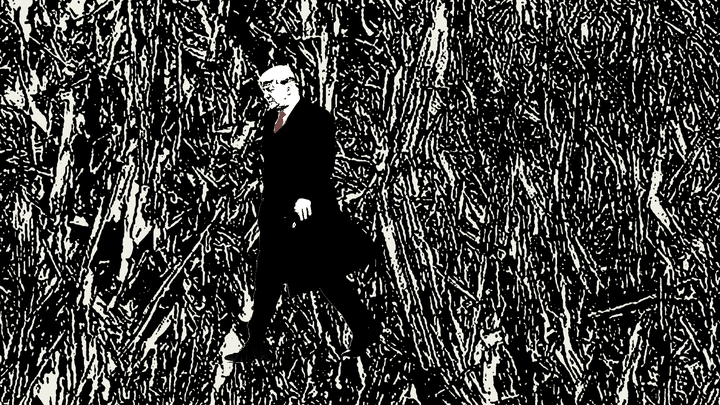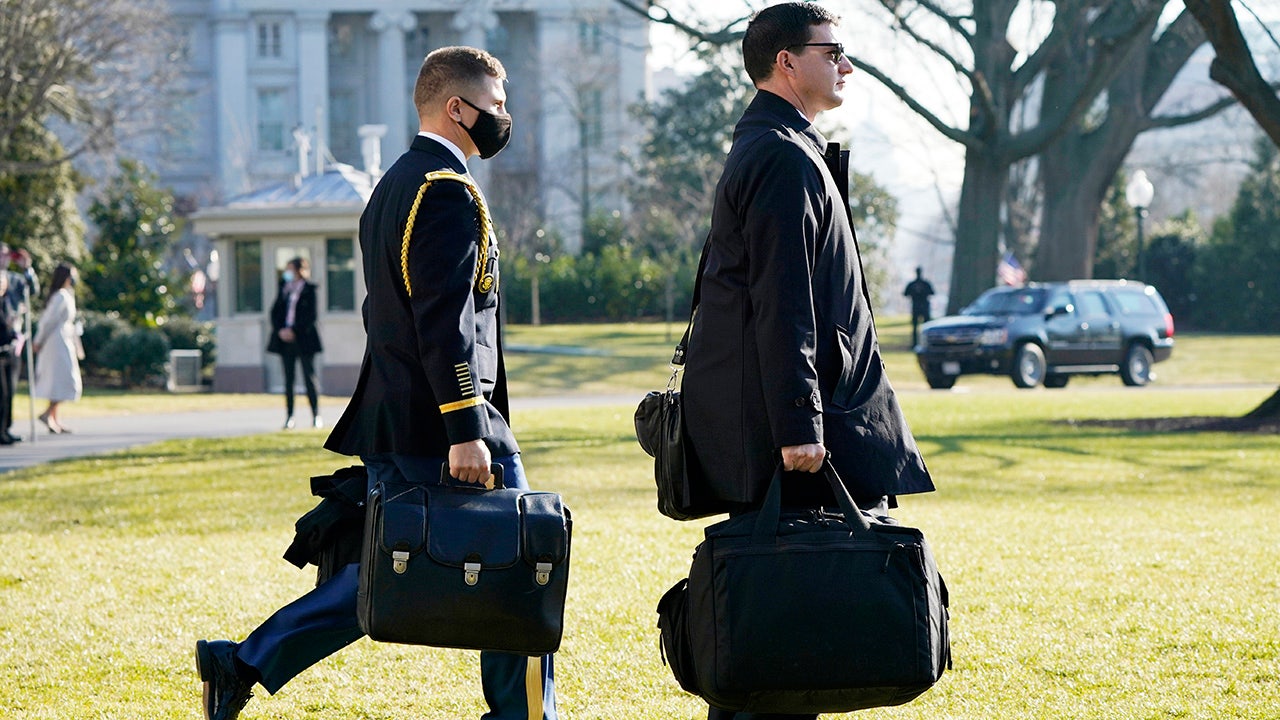Panssari Salama
Respected Leader
Tässäpä kuin tilauksesta The Atlanticin opinion-kirjoitus samasta aiheesta:EI shamaanin avulla, vaan ihan omalla plänillä:
- Postiäänestämisen estäminen oikeusteitse, ohje omille äänestäjille äänestää vaalipäivänä paikan päällä. No ei onnistunut.
- Avainosavaltioiden vaalituloksen kaataminen kuvernöörien, oikeuslaitosten avulla. Ei onnistunut tämäkään.
- Lopuksi, kongressin päätös äänestystulosten lähettämisestä takaisin "uudelleen laskettaviksi". V*tuiks meni tämäkin, vaikka edustajainhuoneessa jopa suurin osa republikaaniäänestäjistä äänesti tämän puolesta.
- Kaiken ohella propaganda oman äänivyöryvoiton katoamiasesta vastustajan huijaamiseen.
Yritti kyllä. Ei onnistunut. Lopulta lähellekään. Yritti se silti, tosissaan.
Maksumuuri sallii kolme ilmaista artikkelia kuussa, joten lainaan tänne kokonaisuudessaan:

An Incompetent Authoritarian Is Still a Catastrophe
Trump leaves behind a wounded nation, and it will take time to heal.
An Incompetent Authoritarian Is Still a Catastrophe
Trump leaves behind a wounded nation, and it will take time to heal.
6:00 AM ET
Adam Serwer
Staff writer at The Atlantic

GETTY / THE ATLANTIC
So what if he was bad at it?
The five years of the Trump era—which began with his descent down the gilded escalator in Trump Tower in 2015 and are ending with a massive military presence in the nation’s capital to protect the transfer of power to his successor—brought a sustained assault on self-government. This assault was most often futile, almost always buffoonish, and, as the conversion of the seat of the federal government into an armed fortress demonstrates, unquestionably real.
Throughout the Trump era, some have argued that Trump’s incompetence rendered his authoritarian aspirations inconsequential.
“Our weak, ranting, infected-by-Covid chief executive is not plotting a coup, because a term like ‘plotting’ implies capabilities that he conspicuously lacks,” wrote the New York Times columnist Ross Douthat in October, describing the president as a “noisy weakling.” Douthat has since re-evaluated his position, but for a long time he was the most articulate proponent of the argument that Trump was not as dangerous as his opponents believed.
Believing that Trump’s departure proves his harmlessness is akin to arguing that getting shot in the leg is inconsequential because the wound will not kill you. Even nonfatal gunshot wounds do terrible things to the human body. They can twist flesh and muscle as if they were dough; shatter bones to dust; leave victims unable to walk without assistance; keep survivors from closing their fingers into a fist. They can poison the blood, drown the lungs, and—even when the body escapes being disfigured—leave the brain scarred by trauma.
RECOMMENDED READING
Build Back Boring
JOHN DICKERSON
Don’t Repeat Obama’s Mistakes
DEREK THOMPSON
America Desperately Needs a New Age of Moral Leadership
DANIEL T. RODGERS
American democracy persevered because of those who rejected the arrogant counsel that the system would hold: The protesters who mobbed airports and filled the streets, the organizers who planned meetings and knocked on doors, and the voters who flooded the polls by the tens of millions.
The wounds of Trumpism haven’t proved lethal to the democratic project, but they are very real.
Trump’s initial attack on American democracy occupied much of the first two years of his administration, but was arguably the least damaging in the long term. As a candidate, Trump both encouraged and benefited from the intervention of the Russian government in an American election. As a candidate and as president, Trump sought to deflect blame from the Kremlin, illegally obstructed the investigation (arguably successfully) into its interference, and then pardoned supporters who had refused to cooperate with investigators.
Yet to the extent that Russia’s gambit succeeded in tilting the 2016 election, it was because of the last-minute intervention by James Comey, then the director of the FBI. Comey’s decision to violate Department of Justice guidelines regarding disclosure of information that could affect elections—while keeping the bureau’s investigation into whether the Trump campaign had illegally coordinated with the Russian government secret—was an indispensable factor in Trump’s 2016 victory. Trump and his allies spent the next four years railing against rogue actors in law enforcement and intelligence agencies, willfully ignoring the fact that Trump owed his presidency to such people.
As president, Trump attempted to use the census to effect a nationwide racial gerrymander that would enhance the political influence of white voters at the expense of Black and Latino voters. That scheme was foiled by bureaucratic incompetence on the administration’s part, as liberal activists used the trail of breadcrumbs it had left behind to uncover the nature of the scheme just before the Supreme Court was set to rule on it. If Trump had won a second term, he might have succeeded in manipulating the census for political ends.
A year before the 2020 election, Trump tried to strong-arm the president of Ukraine into falsely accusing his most likely Democratic rival of a crime. The actions of a lone whistleblower led to Trump’s plan being revealed, and subsequently to his first impeachment. The Democratic congressional leadership might have preferred to avoid impeachment, but his actions made it necessary; to allow a president to use his authority to frame a political rival without consequence would be to invite him to do it again. Impeaching Trump failed to remove him, but it exposed and neutralized a campaign smear that his enablers in the press were, until that moment, eager to amplify.
The case for impeaching Trump was straightforward: If presidents can use the awesome power of their office to frame their political rivals for crimes, they can prevent the rise of anyone attempting to challenge their hold on power. “Corrupting an election to keep oneself in office is perhaps the most abusive and destructive violation of one’s oath of office that I can imagine,” Mitt Romney, the only Republican senator to support conviction, argued on the Senate floor. Romney was correct; the Founders had devised impeachment precisely for the possibility of a chief executive who abuses his power to stay in office.
Susan Collins, the Republican senator from Maine, who voted to acquit, argued that Trump had “learned a pretty big lesson” from impeachment. Indeed he had. Trump learned that Republican senators would acquiesce to his abuses of power, even if he were to attempt to corrupt an election to keep himself in office.
So he did it again, and again, and again.
Trump attacked the validity of mail-in ballots, having recognized that his dismissals of the pandemic had created a partisan split in evaluations of the coronavirus threat and therefore a split in who would vote in person on Election Day. He hatched a scheme to declare victory before such ballots were counted. Trump’s appointee to run the Postal Service so egregiously mismanaged the agency that late ballots were in danger of being invalidated, which could have tipped outcomes in close states.
The president’s attorneys—not just the unhinged fanatics who wove grand conspiracy theories—hoped that, by invalidating enough ballots, they could secure majorities in swing states. Both the president and his advisers insisted that fraud had occurred in majority-Black jurisdictions such as Atlanta, Milwaukee, Philadelphia, and Detroit, and that large numbers of votes should be discarded. The Trumpist cry to count “every legal vote” left unsaid which votes were illegal, because Trump supporters already knew the answer.
Refusing to cooperate with those who had habitually minimized the risks Trump posed, the president spent the postelection months attempting to overturn the result in one bizarre scheme after another. He demanded that courts throw out votes in mostly Black jurisdictions. He tried to coerce state legislatures into invalidating the result in their states. He urged the Supreme Court to declare him president by fiat. He savaged Republican election officials who refused to cooperate, and then tried to pressure them into fabricating new vote counts. Republicans who refused to go along with Trump’s effort to reverse the election now face the prospect of being removed and replaced by apparatchiks who would have.
Having persuaded millions of his adoring supporters to risk their own lives by ignoring the dangers posed by a global pandemic, Trump had little trouble convincing them that the election he had decisively lost was rigged. His falsehoods culminated in the deadly assault on the Capitol building, in which a mob of his supporters sought to capture and kill federal lawmakers—including the vice president.
Trump, often described as a populist, spoke frequently about the will of the people—but he only ever saw himself as an avatar of a particular group of Americans. A president who lost the popular vote twice was never inclined to think of “the people” in anything but the narrowest terms. He was an avatar of the right people, those who, in their minds, had been granted the mantle of heaven since the Founding. The multiracial coalition that defeated them in 2020 by a margin of some 7 million votes was fraudulent by definition and possessed no legitimate claim to power.
The most consistent principle of Trumpist populism was that keeping Trump in power was too important to leave to the people. The sacking of the Capitol was a logical consequence of that belief.
The defense that Trump’s authoritarianism was tempered by his incompetence rests on the faulty assumption that incompetence mitigates the damage he has done. Even an inept authoritarian can—partly by his very ineptitude—corrupt the responsibilities of the state, erode democracy, and leave a significant portion of the electorate in thrall to a cult of personality.
The coronavirus pandemic is still raging through the United States like a wildfire, with 400,000 dead. By spring, the number of casualties will begin to rival the 600,000 Americans who died in the Civil War, the largest death toll for a single event in American history.
This was not an inevitable outcome. It was the consequence of an administration whose main objective was shielding Donald Trump’s ego and preserving his political prospects. Trump’s allies in the conservative media and in state governments foiled an effective public response and dissuaded their own supporters from taking basic safety measures. The president’s cult of personality took precedence over whether Americans lived or died. Incompetent authoritarianism did not limit the damage of the pandemic; it exacerbated that damage.
The same is true of much of the rest of the president’s agenda. The child-separation policy was so incompetently administered that today many of the families remain shattered because the administration did not bother to keep adequate records. The Trump administration’s indifference to the treatment of migrants in detention led to scores of deaths. The president’s initial anti-Muslim travel ban did not cause less damage for being incompetently administered. The president’s response to the devastation of Hurricane Maria in Puerto Rico, whose residents he regards with such contempt that he wanted to expel them from the United States, was not less ruinous for being incompetent. Trump’s handling of the George Floyd protests, while politically inept, nevertheless encouraged a wave of police brutality against Americans protesting police brutality. The federal government might have been better prepared for the Capitol riot had national-security agencies not been pressured by the president to downplay the threat of white-nationalist extremism because of his association with it. Trump, who declared that he would be the “greatest jobs president God ever created,” began his term with a booming economy and ends it with the worst jobs record of any president since Herbert Hoover, in part because he put his preoccupation with his own image ahead of rescuing the economy or containing the pandemic that crashed it.
The combination of Trump’s incompetence and authoritarianism, in short, made effective governance nearly impossible, and proved utterly calamitous in the face of a genuine national crisis. Not only that, but it short-circuited the checks and balances that might have forced the administration to alter course. Trump’s incompetence did not loosen his grip on the Republican Party faithful; instead it made their minds more pliable to ludicrous and fantastic explanations for why his administration was failing. Republicans in both the House and the Senate, beholden to voters fully ensconced in the president’s alternate universe, made the political choice to enable Trump’s incompetence and authoritarianism by providing no reasonable limits on his power and no correction of his mismanagement of the federal government.
The point is not that a “competent” authoritarian is preferable. The point is that having an aspiring authoritarian in the office of the presidency, competent or incompetent, is a catastrophe, one absurdly minimized by the baseline metric of whether or not democracy ends under his tenure. This is perhaps the first time the standard for a presidency has been set at whether or not the republic itself ceased to exist. Seeing that a transfer of power will take place, under military guard and despite Trump’s best efforts to prevent it, critics of liberal hysteria somehow imagine themselves vindicated.
A large portion of the conservative electorate—and at least two members of Congress—is now in thrall to the lunatic QAnon conspiracy theory, a fantasy that imagines and justifies the mass murder of political opponents. The combination of Trump’s incompetence and authoritarianism ultimately necessitated the creation of an alternate reality in which his supporters could dwell comfortably; elected Republicans now find themselves afraid to challenge these believers. The logic of conspiracy dictates that all developments only enhance the original theory; the rejection of Trump at the ballot box hasn’t dispelled the delusions of his followers, but instead proved to them that elections they lose are by definition corrupt, and so their outcomes can be disregarded.
Antidemocratic elements were long present in the Republican Party prior to Trump’s rise—after their defeat in 2012, Republicans considered a number of the malicious political schemes they are now reviving. But that does not minimize the fact that Trump forcefully accelerated such trends. A car headed for a cliff can still turn away at the last second; Trump pressed his foot on the gas.
Having enabled some of the worst elements of the American right, Trump leaves behind a Republican Party secure in its conviction that its future depends more on excising large sections of the American public from the polity than on appealing to them, and with a base even more rabidly committed to the project of minority rule. Republican losses in formerly reliably red states like Georgia and Arizona have only increased the perceived urgency of further restricting the electorate, so that the American voters spellbound by Trump can wield even more influence in a system that already enhances the minority’s power to a degree not seen in any other modern democracy.
Republicans entered the Trump era with the House, the Senate, and the presidency. Over the past four years, they lost all three, despite the substantial political advantages enjoyed by conservative voters through the Senate, the Electoral College, and the House districts designed by Republican state legislatures. These advantages have somehow only exacerbated right-wing entitlement.
The Capitol rioters were so convinced of their right to rule that they attempted to violently overturn the election, leading to the kind of armed presence Washington, D.C., hasn’t seen for an inauguration since Abraham Lincoln took office. On the night of January 6, as the counting of the electoral votes resumed, the mob was rewarded with the tacit support of a majority of the House Republican caucus, which concurred that the American people can vote for whomever they like, as long they vote Republican.
The true damage of the Trump era can’t yet be fully assessed; the patient is still recovering in the trauma bay. What we do know is that an aspiring authoritarian, even an incompetent one, can do tremendous damage to the body politic. If there is to be a recovery, it will be long and arduous, and require sustained intensive care. Even old wounds can ultimately prove fatal.









